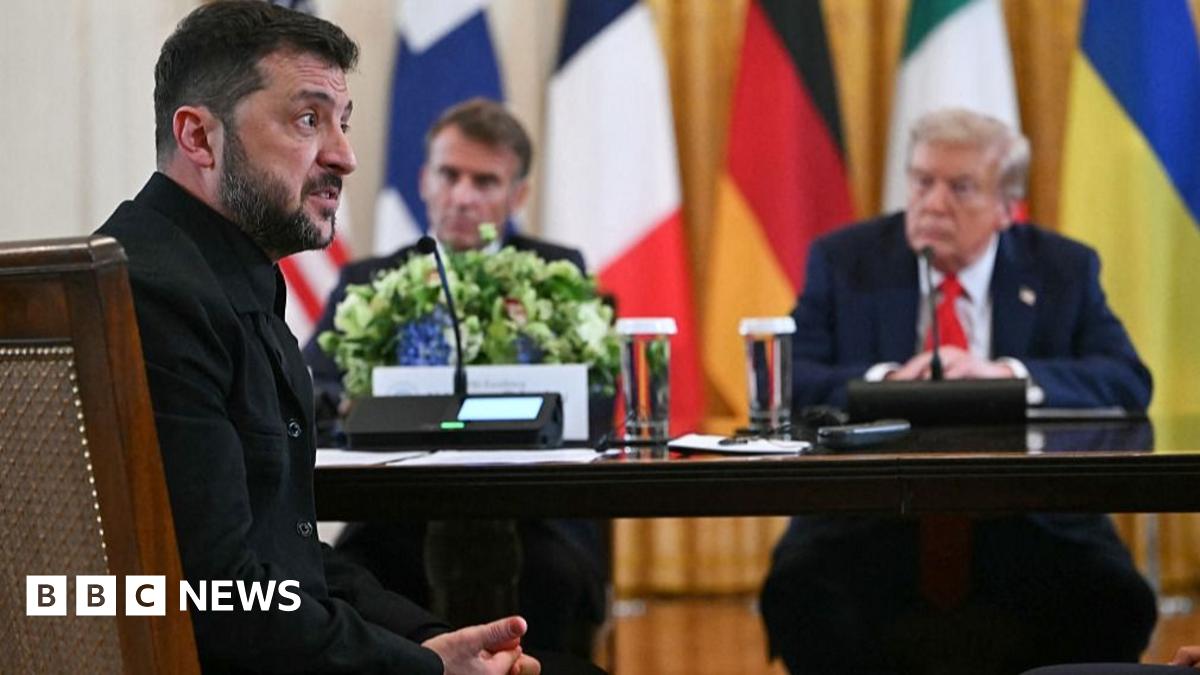Zelenskyy Open to Putin Talks Following Trump's Intervention – Can Dialogue Break the Stalemate?

In a surprising turn of events, Ukrainian President Volodymyr Zelenskyy has indicated his willingness to meet with Russian President Vladimir Putin following recent comments from former US President Donald Trump suggesting he could broker a peace deal. This development comes after Zelenskyy described Monday’s discussions with international partners as “constructive,” although details remain scarce.
The shift in tone from Kyiv represents a potential, albeit cautious, step towards renewed diplomatic efforts to end the ongoing conflict. For months, direct talks between Zelenskyy and Putin have appeared increasingly unlikely, with both sides entrenched in their positions and significant distrust lingering.
Trump, during a recent rally, claimed he could end the war within 24 hours if given the opportunity, citing his supposed strong relationship with both Zelenskyy and Putin. While these claims have been met with skepticism, they have nonetheless injected a new element into the complex geopolitical landscape.
A Cautious Optimism?
Zelenskyy's statement, while not explicitly endorsing Trump’s proposal, suggests a willingness to explore all avenues for achieving peace. “We are ready for dialogue with Russia if this will lead to the restoration of Ukraine's territorial integrity and sovereignty, and if there is a willingness to end the war,” he stated. However, he also emphasized the importance of guarantees and security assurances.
European leaders have largely echoed calls for a ceasefire and a negotiated settlement, but have also stressed the need for Russia to withdraw its troops from Ukrainian territory and respect Ukraine's sovereignty. The European Union has pledged continued support for Ukraine, both financially and militarily, and has maintained sanctions against Russia.
Challenges and Obstacles
Significant obstacles remain to any meaningful dialogue. Russia continues to occupy large swathes of Ukrainian territory, including Crimea, and has shown little indication of a willingness to compromise. Furthermore, deep-seated mistrust between the two leaders makes any negotiations fraught with difficulty.
The involvement of external actors, such as the United States and European Union, adds another layer of complexity. While these actors have been instrumental in providing support to Ukraine, their own strategic interests and agendas can also influence the dynamics of the conflict.
The Trump Factor
Trump’s remarks, while potentially disruptive, could also create an opportunity for a fresh approach. His willingness to engage directly with both sides, regardless of the complexities, could potentially bypass traditional diplomatic channels. However, his track record on foreign policy and his tendency to make unpredictable statements raise concerns about the potential consequences of his involvement.
Looking Ahead
Whether Zelenskyy and Putin will ultimately meet remains to be seen. However, the mere possibility of dialogue represents a glimmer of hope in a conflict that has already caused immense suffering. A successful negotiation will require compromise from both sides, a commitment to international law, and strong guarantees of security and stability for Ukraine. The international community must continue to support these efforts and work towards a lasting peace.






